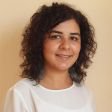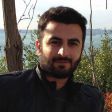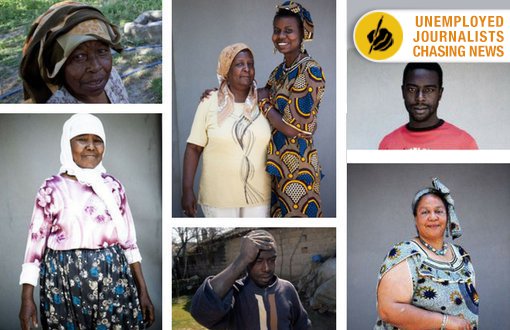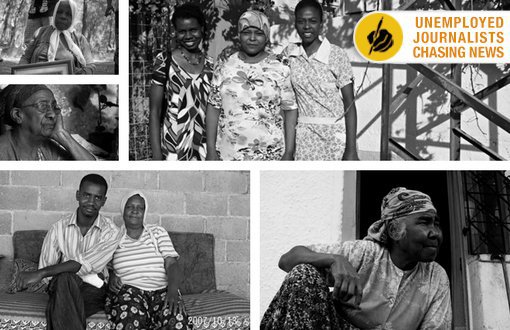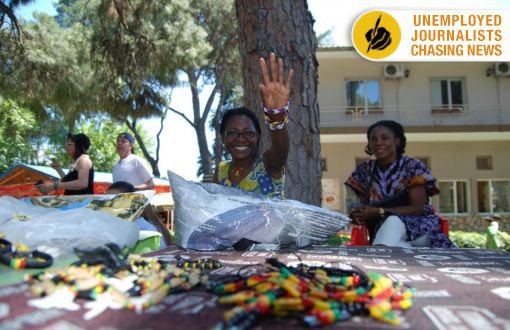Click to read the article in Turkish / Kurdish
“Skin color is the ultimate determining factor in social recognition and participation in any activity.”
Lülüfer Körükmez, Assistant Professor at Ege University Sociology Department, describes what Afro-Turks (the African community living in Turkey) experience in their daily lives, business life and education due to their skin color with these words.
The African Culture, Cooperation and Solidarity Association Society was founded in 2016. It addresses the discrimination faced by Afro-Turks due to their skin color. Academician Körükmez conducts the field studies for the association and keeps a record of the experiences of discrimination based on skin-color.
_500.jpg)
Afro – Turks: The grandchildren of slaves brought from AfricaAfro-Turks, whose grand grandmothers and grandfathers were brought from Africa to Anatolia durıng Ottoman era, reside predominantly in Aegean Region. Sabancı University faculty member Hakan Erdem, who does studies on Ottoman slavery, says that there had been slavery in Ottoman Empire since its early period. According to Erdem, ten thousand slaves were brought from Africa to the Ottoman territories during the 19th century. Today, the members of this African community describe themselves as Afro-Turks, and they are the descendants of people exploited as slaves in areas that include present-day Turkey Children kidnapped in Hadj In the Ottoman Empire, slaves were brought predominantly from Africa and Caucasia, as it was forbidden to enslave the state’s own subjects. African slaves were usually brought from Sudan, Ethiopia and Chad. The slave population was made up of prisoners of war and those abducted by slave traders. In addition, people went to Hadj kidnapped children and brought them to Ottoman land as proof of their voyage. Slaves cannot own property In Ottoman Empire, slaves were called by names such as subject, handmaiden, odalisque and gulam. They were usually employed in big farms, in domestic service and in harems. In Ottoman law, there were rules regarding slavery. Slaves were able to be bought, sold and given as gifts. They themselves could not own property. Their language and culture were obliviated The slaves in Ottoman Empire were forbidden to speak their own languages or to pray according to their own beliefs. This restricted them in passing on their language, religion and culture to the next generation. For this reason, citizens of Turkey of African origin (Afro-Turks) do not even know what language their ancestors spoke |
“Performance” expectation
.jpg)
Afro-Turks mainly live in rural areas and as such their access to education is limited. Even if they start an education, their educational life can be left unfinished. The number of those going to university are quite low. The two most important reasons behind this are poverty and discrimination based on skin color/racial discrimation. Afro-Turks who take part in educational life can be mocked and ridiculed by their schoolmates. They are forced to perform to a high standard in order to stay in the educational system and have their skin color accepted.
Assistant Professor Körükmez explains:
“They have bigger difficulties when they are ordinary, without any talent or unwilling to display high performance. An interviewee said that she was accepted more easily when she performed well on stage or when she rearranged her own outlook in accordance with the popular view.
For example, she might make her hair curly and puffy, or wear beads in her hair. That is to say, she is accepted insofar as she submits to the demand to be cute. This may seem to just be something “cute” at first, but it is only another form of discrimination.
Nobody should have to be cute or talented. If this principle can be embedded within education life, the children might be enabled to participate in education.”
Awareness
Assistant Professor Körükmez says that children that attend schools with Afro-Turk children and their parents should receive awareness trainings or other awareness practices should be put into practice.
“In order for the children to be accepted in the class, the teachers and administrators should manage the process well. Behaviors such as mocking and teasing alienate students from educational life.
Every effort must be made to explain different skin colors to children and to encouragetogetherness.”
Cuteness, sweetness, Arabness
Journalist Alev Karakartal is conducting research about Afro-Turks both within the association and personally.
Karakartal recalls that as a child, she was marginalized specifically at times of crisis.
“In good times, you are cute and sweet. But at the slightest crisis, the children would yell “Arab, Arab,” and you are excluded. In my childhood they did not know “negro.”
When I was an adult woman, they learned “negro” from American movies and started to say “dirty negro.” Once, I even heard someone call me “negro” in English.
We are a funny country. We learn the history of slavery in our country and its relation to black people through the USA.”
There is no representation in textbooks
The association has been inviting Afro-Germans (citizens of Germany with African background) to Turkey and getting them together with Afro-Turks.
Assistant Professor Körükmez describes an observation which caught her attention especially with regards to children:
“We realized that Afro-Turk children are interested in Afro-German children’s books, because Afro-German children’s coloring books have black children and black or mixed families. For this reason, curriculum is really important…
The fact that they are given a place in coloring books and textbooks gives the message that the child is recognized. This is a long process, but it has to start at some point.”
From time to time, Afro-Turk families make demands to media channels and publishers for books and cartoons that have black representation. As of yet, they have not received a response.
First meeting towards organization
.jpg)
I asked what sort of an association this was. When I learned that its sole purpose was cultural, I invited him to my house in Ayvalık. We hadn’t met before the association. He visited us and brought the book he wrote, “The Arab Girl Looks from the Window.” We spoke, read his book and made the decision to start the organization/made this decision together.”
African Culture, Cooperation and Solidarity Association Chairman Şakir Doğuluer describes the first meeting towards the organization as such.
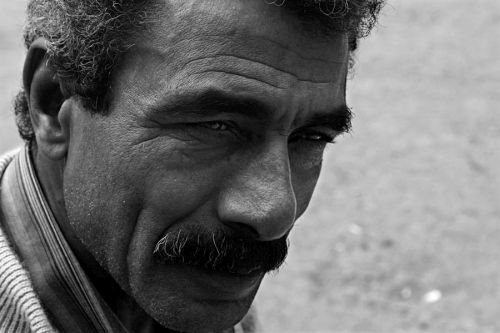 |
Mustafa Olpak was born in Ayvalık as the the fifth child of stonemason Mehmet of Rethymno and Crete emigree Kemale. He was registered 15 months later. His date of birth on his national ID card is January 1, 1955. After graduating from elementary school, he began to work at a lathe leveling atelier. After military service, he was active in the Karabağlar People’s House Association in Izmir. In 1979, ultranationalists attacked the association, and he was shot from his arm and leg. He was among those who were taken into custody although they were the ones assaulted. He was in prison for 1 year after 1980 coup d’état. When he got out of prison, he was not able to use his arm like before. He then changed his profession and become a marble master. In the 1990s, he decided to write down his memories and began to research his roots. The only thing he knew was that his ancestors were kidnapped from Kenya and sold to the Ottoman Empire. “Human Slave Biographies from Kenya-Crete-Istanbul Coasts” (Ozan Pub. 2015) came to light like this. The extended edition of the book was published by Punto Publishing three years later. Olpak was the founder and first chairman of the African Culture, Cooperation and Solidarity Association. He lost his life in October 2016. (Resource: Köklerini araştıran adam Mustafa Olpak - Ayda Kayar) |
The association, which was initiated under the chairmanship of Mustafa Olpak, has played a significant role in gathering Afro-Turks together. Thanks to the association, citizens of Turkey with African background started to be called Afro-Turks after years of being called “Arab.”
"Mustafa Olpak carried the struggle for rights in his bag"
Since they did not have an office in the beginning, Olpak was carrying the association in his bag. He met and spoke to everybody he could. There were places he was not welcome, or even kicked out. But he said, “This is a long journey,” and continued on.
With his teammates, he went a long way in a short time. He ensured that Afro-Turks were recognized and he increased their visibility.
Due to his efforts, research projects about Afro-Turks were not restricted to Turkey. International academicians and researchers were also involved in time. An African tradition, the Calf Festival, came to İzmir in this way.
Olpak’s death has deeply affected many people. Chairperson Doğuluer says: “Mustafa Olpak dragged his foot when he walked. Sometimes I hear sounds like that and I feel like he is coming.”
Doğuluer: “We said: we exist too”
Doğuluer says of Mustafa Olpak:
“He dedicated his life to the association. He saw it as his child. He contributed to us a lot. Thanks to the association, we came together and said “we exist too.” We were behaving timidly due to verbal abuse. But with the association we said “he can look, he can jeer, he is the one to feel shame”. This association has broadened our horizons. We cannot thank Mustafa Olpak enough.”
Doğuluer says of Mustafa Olpak’s project to build an African village: “He wanted to build a fully-fledged village with a cultural center, restaurant and hotels, which would carry the traces of Africa. It is still on our agenda.”
The sign of spring: The Calf Festival
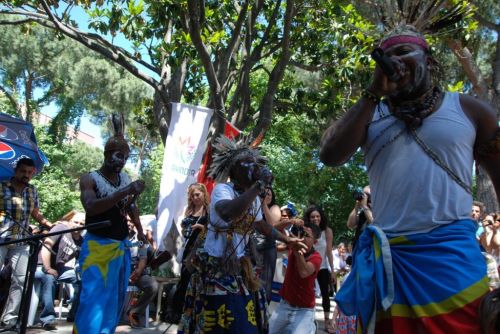
Africans celebrate the Calf Festival to welcome spring. A tradition of Nigeria’s largest ethnic group, the Yoruba people, it is celebrated today in Togo, Senegal, the inner parts of Kenya and Southern Sudan. Africans believe that the festival brings abundance and plenitude.
The festival is run by godyas, spiritual leaders of the community. Godyas are defined as healer women with special powers who keep the community together. In the Ottoman era, from the 1880s until the end of the 1920s, the Calf Festival was celebrated for three weeks. It was organized in the first week of May, when slaves were on leave, as a way to get together and communicate. Godyas would gather money to buy a calf and sacrifice it on the first Saturday of May.
Since 2006, the Calf Festival has been celebrated in Istanbul and Izmir with the organization of African Culture, Cooperation and Solidarity Association. Yet the celebrations held recently were different: They do not sacrifice animals anymore. The celebrations last for 3 days, and picnics and panels are organized. (AT-FD/NU/HK)
Tomorrow: How They Work/Cannot Work, Breaking Down the Stereotypes
***
UNEMPLOYED JOURNALİSTS CHASİNG NEWS
1- Even Though They Speak Through Their New “Occupations,” They Are Journalists
2- Journalism is Banned under theState of Emergency
3- Germany: New Generation Diaspora/Kopuntu
4- Germany: Immigration of the Suffocated
5- The Organization that Made "The Arab Girl Looks from the Window"
6- How They Work/Cannot Work, Breaking Down the Stereotypes
7- They Marry White People to Avoid Discrimination
8- Private Rehabilitation Centers and Problems: The Example of Bingöl
9- Two Directors Discuss the “Educational Support for People with Disabilities” Practices
10- 'Solution is Inclusion System in Education for People with Disabilities'
11- Students and Parents from Bingöl Tell of Their Experiences* Project "Unemployed Journalists Chasing News" is realized with the financial support of Matra-Human Rights Program of Consulate General of the Kingdom of the Netherlands.




